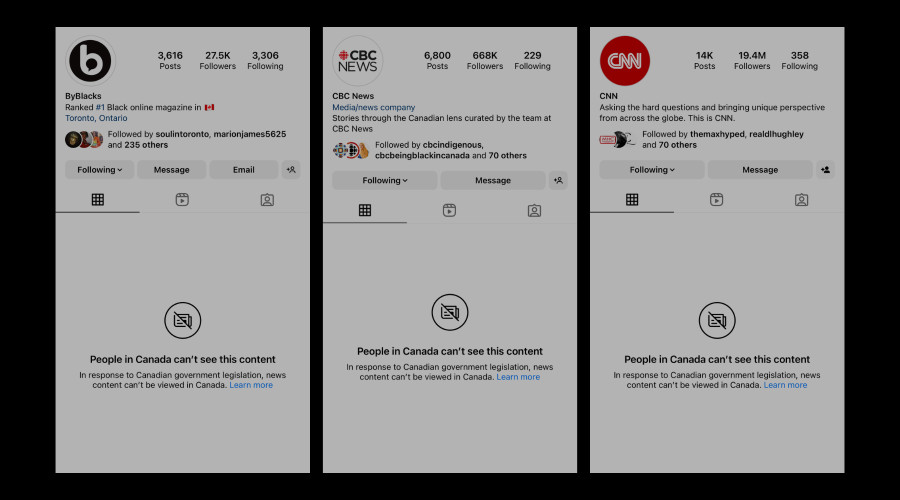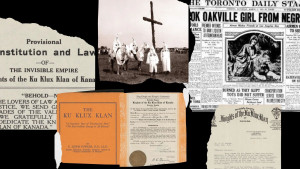In fact, 40% of newcomers reported social media as their primary news source, more than double what we see in Canadian-born citizens at 17%.
This past June, the Canadian government passed the Online News Act (Bill C-18), which requires media giants to reach a government-standardized compensation agreement with Canadians news outlets. The Act intends to “enhance fairness in the Canadian digital news market,” given Meta and Google reportedly earn 80 percent of all digital advertising revenue in Canada. Liberal MP and former Minister of Canadian Heritage Pablo Rodriguez says, “The Online News Act is about supporting a strong, free and independent press by making sure tech giants pay their fair share and compensate news organizations for their work.”
Though, the legislation has yet to prove effective—rather than enter into negotiations, Meta announced: “News availability will be ended on Facebook and Instagram for all users in Canada.” A small percentage of users have already experienced link-sharing restrictions, and as the Act applies to news content beyond article links, the CBC News Instagram page is blocked for some Canadians. In fact, our own ByBlacks Instagram page has also been blocked.
What’s more, Google, the widely-accepted universal search engine, stated they “will be removing links to Canadian news from [their] Search, News, and Discover products and will no longer be able to operate Google News Showcase in Canada.”
Simply put, Bill C-18 is creating a critical information gap which limits the ability of African, Caribbean, and Black (ACB) communities to stay informed. The COVID-19 pandemic is a recent example of how information access barriers for racialized immigrants leads to disastrous consequences for society as a whole. In November 2020, data from Ottawa Public Health showed ACB people were over-represented in COVID-19 infections, making up 37 percent of recorded cases despite making up just seven percent of Ottawa’s population. In contrast, people who identified as white represented 71 percent of Ottawa’s population, but just 33 percent of COVID infections. A study by the International Journal of Environmental Research and Public Health concluded: “the spread of disinformation, a lack of timely and consistent information, language barriers, and structural racism left Black people uniquely and disproportionately vulnerable to the COVID-19 virus and the wider impacts of the pandemic.”
In the wake of COVID-19’s exacerbated spread in immigrant and ACB communities, newcomer service providers mobilized to fill the information gap not accounted for by the Public Health Agency of Canada. They created and distributed factual and culturally-appropriate multilingual COVID-19 resources in newcomer digital spaces. They listened to community leaders acting as digital champions and developed resources to help combat the spread of misinformation through messaging apps like Telegram and WhatsApp, which newcomers have a higher likelihood to use. This was a prime example of information equity in practice—it is best to adapt to your audience’s media consumption habits, rather than imposing narrow parameters to how information can be accessed which only ends up reducing public knowledge.

 By
By 


